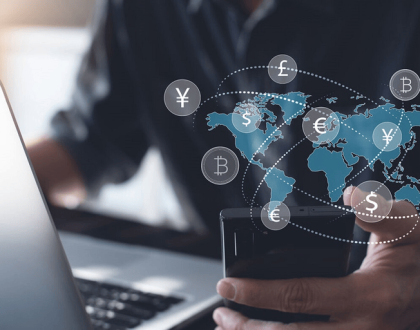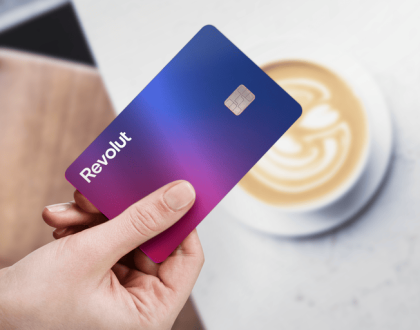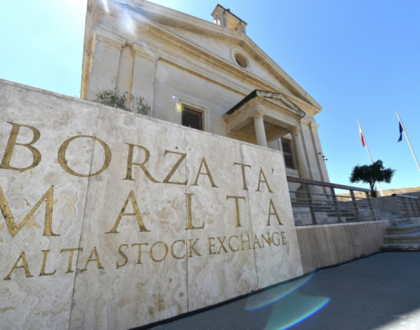The Unseen Dangers of Using Crypto Wallets in 2024

With the rising popularity of cryptocurrency, I understand the appeal of using crypto wallets for managing your digital assets. However, as I dive deeper into this topic, I want to shed light on the unseen dangers that you may encounter in 2024. From security vulnerabilities to potential scams, it's vital to remain vigilant and informed. In this post, I will guide you through critical insights and practical tips to ensure that your crypto journey remains safe and secure.
Understanding Crypto Wallets
Your journey into the world of cryptocurrency begins with understanding crypto wallets, which are crucial for storing and managing your digital assets. As decentralized currencies gain traction, knowing how these wallets operate is imperative for safe transactions. They range from software applications to physical devices, offering varying levels of security and convenience for your assets.
Types of Crypto Wallets
Types of crypto wallets can be categorized into different formats based on their accessibility and security features:
| 1. Software Wallets | Accessible via desktop or mobile |
| 2. Hardware Wallets | Physical devices providing high security |
| 3. Paper Wallets | Physical print of your private and public keys |
| 4. Online Wallets | Web-based wallets for easy access |
| 5. Mobile Wallets | Apps designed for transactions on the go |
This understanding lays the foundation for selecting the right wallet for your needs and security preferences.
Security Features Explained
Explained in detail, security features are paramount when using crypto wallets to safeguard your digital assets. Each wallet type comes with its own set of protective measures to help prevent unauthorized access.
Security protocols such as two-factor authentication (2FA), biometric logins, and encryption standards are vital components. Ensuring that your wallet is equipped with advanced security features will significantly reduce the risk of hacks or theft. Staying informed about the evolving security landscape is imperative for maintaining the safety of your cryptocurrencies.
Common Threats to Crypto Wallet Users
If you're using crypto wallets in 2024, you must be aware of several common threats that can jeopardize your assets. From social engineering tactics to sophisticated attacks targeting the software, these vulnerabilities can lead to significant financial loss. Understanding these threats is crucial for safeguarding your investments and ensuring that your cryptocurrency remains secure.
Phishing Attacks
With the rise in cryptocurrency adoption, phishing attacks have become increasingly sophisticated. Cybercriminals often disguise themselves as legitimate platforms or services, tricking you into revealing your private keys or recovery phrases. It's crucial to remain vigilant and verify the authenticity of communications before clicking any links or providing sensitive information.
Malware and Ransomware
Ransomware attacks can be devastating for crypto wallet users. They often infiltrate devices through malicious downloads or compromised software, locking you out of your wallet and demanding payment to regain access. Such attacks can also exfiltrate sensitive data that could lead to further financial loss.
To prevent malware and ransomware threats, I recommend using reliable security software and keeping your devices updated regularly. Moreover, never download applications from unverified sources or click on suspicious links. Utilizing hardware wallets can also enhance your security by keeping your private keys offline, making it more challenging for cybercriminals to gain access to your funds.
Regulatory Landscape in 2024
You may be surprised to learn that the regulatory landscape for cryptocurrency wallets has evolved significantly in 2024. Governments across the globe are increasingly recognizing the need to implement strict regulations to curb potential fraud and money laundering. As I navigate this changing environment, it's crucial to understand how these developments could influence how you use and manage your digital assets.
Changes in Legislation
Regulatory measures are shifting as countries introduce new laws aimed at protecting consumers and enhancing security frameworks. In 2024, I noticed jurisdictions tightening their grip on crypto transactions through increased reporting requirements and the introduction of stringent anti-money laundering (AML) frameworks. These changes could affect how you utilize crypto wallets, especially if you interact with exchanges that are now required to adhere to new compliance protocols.
Impact on User Security
One of the most significant impacts of these changes lies in their effect on user security. With stronger regulations, I believe that users may see improved security measures, as companies will be compelled to adhere to best practices to avoid penalties. However, these regulations could also present new vulnerabilities, as firms may face increased pressure to handle sensitive data responsibly.
Changes in the regulatory landscape mean that while the security of your assets might improve, new risks could emerge in terms of data privacy. Companies will now need to collect and store more personal information to comply with regulations, which may expose users to potential data breaches. Ensuring that the wallets and exchanges you use prioritize both security and privacy is vital for protecting your assets in this evolving environment.
Best Practices for Securing Your Wallet
Not taking security seriously can put your assets at risk. To ensure the safety of your crypto investments, I recommend employing a multi-layered security approach that includes strong passwords, two-factor authentication, and regular updates to your wallet's software. By being proactive, you can greatly reduce your chances of falling victim to cyber threats.
Password Management
Any effective security strategy begins with robust password management. I suggest using a unique, complex password for your crypto wallet that combines letters, numbers, and special characters. Additionally, utilizing a reputable password manager can help you generate and store these passwords securely, minimizing the risk of unauthorized access.
Two-Factor Authentication
For added security, I highly recommend enabling two-factor authentication (2FA) on your crypto wallet. This additional layer of protection ensures that even if someone manages to obtain your password, they still cannot access your wallet without a second form of identification.
The implementation of 2FA typically involves receiving a one-time code via SMS or an authentication app when you attempt to log in. This means that, even if your password is compromised, the hacker would still need your physical device to complete the login process. Therefore, I view 2FA as an imperative step in securing your crypto wallet, as it dramatically decreases the likelihood of unauthorized access.
The Role of Technology in Wallet Security
Despite the rapid advancements in crypto wallets, technology can be both a double-edged sword and a vital ally in securing your assets. As hackers become more sophisticated, the security measures adopted in wallets must evolve accordingly. Utilizing state-of-the-art technology is imperative for any crypto user in 2024, ensuring that your investments are well protected from unseen threats that lurk in the digital landscape.
Biometric Security Measures
Biometric security measures, such as fingerprint scans and facial recognition, have emerged as crucial components of modern crypto wallet protection. They add an extra layer of security beyond traditional passwords, making unauthorized access significantly more difficult. When you incorporate biometric verification into your wallet, you're ensuring that only you can access your assets, further enhancing the safety of your investments.
Blockchain Innovations
Innovations in blockchain technology continue to redefine the security landscape of crypto wallets. Features like smart contracts and multi-signature wallets offer enhanced security options, allowing you to monitor and control transactions more effectively. These advancements not only provide you with peace of mind but also empower you to take a proactive approach to securing your digital wealth.
Security in the blockchain space is also bolstered by decentralized protocols that reduce the risks associated with centralized storage methods. As I explore and utilize these innovations, I feel more confident in the security of my crypto assets. By harnessing the potential of blockchain technology, I can implement measures that safeguard my investments against theft, fraud, and other vulnerabilities that may arise in the ever-evolving digital landscape.
Psychological Aspects of Crypto Ownership
Unlike traditional investments, owning cryptocurrency can profoundly affect your mental state. The volatility and unpredictability of crypto markets often lead to heightened emotions, which can cloud judgment and impact decision-making. Understanding the psychological factors at play can help you navigate the complex landscape of cryptocurrency ownership more effectively and safeguard your investments against irrational behaviors.
User Awareness and Education
Psychological factors play a significant role in how you perceive and interact with cryptocurrencies. A lack of user awareness and education can exacerbate anxiety and misinformed decision-making. Without proper knowledge of market mechanics and security practices, you may fall prey to scams or make impulsive choices, ultimately jeopardizing your financial well-being.
Emotional Decision-Making in Crypto Trading
Emotional responses often dictate how you act in the high-stakes environment of crypto trading. Greed, fear, and excitement can lead to impulsive decisions, causing you to buy high and sell low. Recognizing these emotional triggers can empower you to develop a strategy that minimizes emotional influence, allowing for more rational and informed trading choices.
Education on emotional decision-making is crucial in the world of cryptocurrency. Awareness of your emotional responses can guide you to create a disciplined trading strategy, helping you avoid common pitfalls associated with fear-driven selling or greed-inspired buying. By understanding the psychological aspects, I can establish clear parameters for my trades and be less swayed by sudden market shifts, ultimately leading to more stable financial outcomes.
Final Words
On the whole, it is crucial for you to understand the unseen dangers of using crypto wallets in 2024. As I navigate this rapidly evolving landscape, I urge you to remain vigilant against threats such as phishing scams, inadequate security measures, and the potential for losing access to your assets. By educating yourself and employing best practices, you can safeguard your investments and mitigate risks. Bear in mind, the convenience of crypto should never outweigh the importance of security in your financial endeavors.
FAQs
What are the primary types of crypto wallets available?
The main types of crypto wallets include software wallets, hardware wallets, paper wallets, online wallets, and mobile wallets. Each type offers different levels of security and convenience based on your needs.
How can I protect my crypto wallet from phishing attacks?
To protect against phishing attacks, always verify the authenticity of any communication before clicking links or providing personal information. Be cautious of unsolicited messages and use trusted platforms.
What is two-factor authentication (2FA) and why is it important for crypto wallets?
Two-factor authentication (2FA) adds an extra layer of security by requiring a second form of verification, such as a code sent to your phone, in addition to your password. It significantly reduces the risk of unauthorized access to your wallet.
How do regulatory changes in 2024 impact crypto wallet security?
Recent regulatory changes may enhance security by enforcing stricter anti-money laundering measures and reporting requirements. However, they could also introduce new risks related to data privacy and compliance.
What steps should I take to manage emotional decision-making in crypto trading?
To manage emotional decision-making, educate yourself about the market, develop a disciplined trading strategy, and recognize emotional triggers that can affect your decisions. This approach helps in making rational and informed trading choices.
Recommended Posts

Malta’s economy records €406.5m surplus in Q2
October 1, 2024

Maltese Firms Boost Revolut’s B2B Growth
September 30, 2024

The Issuance of Malta Government Stocks
September 27, 2024




